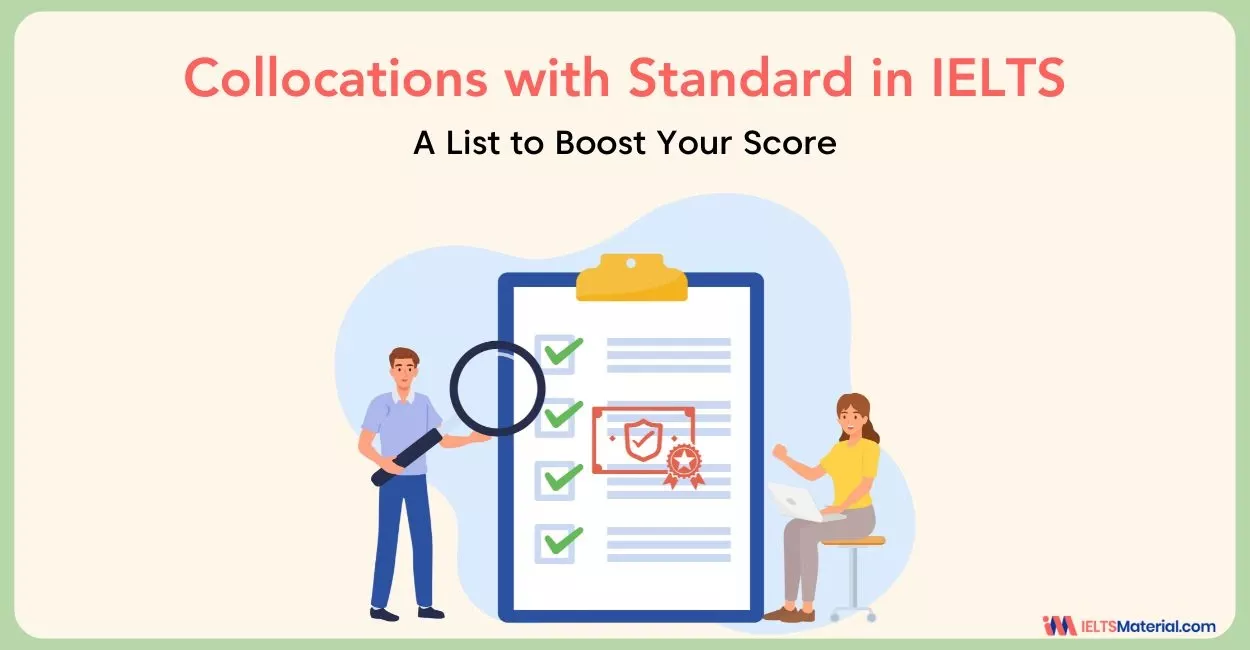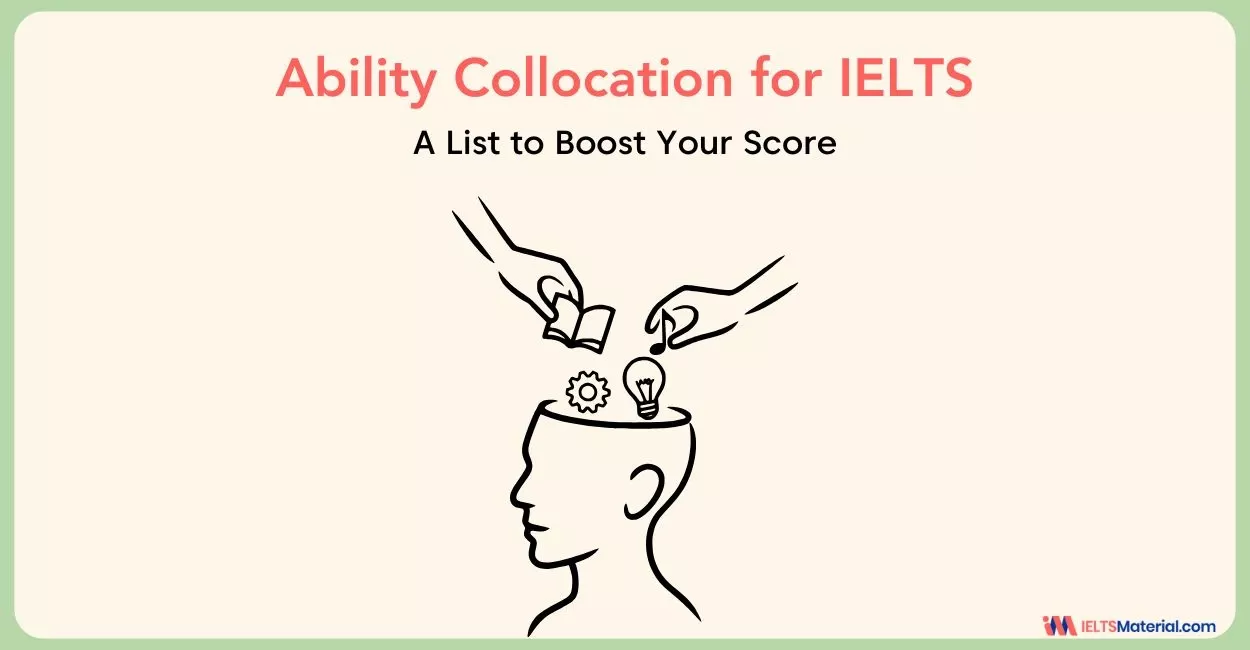Change Collocation for IELTS: A List to Boost Your Score
7 min read
Updated On
-
Copy link
Build your IELTS lexical resource with advanced change collocations. This blog will help you in the natural application of collocations in your written and spoken communication, offering meaning, illustrative examples, and practical exercises.
Table of Contents

Limited-Time Offer : Access a FREE 10-Day IELTS Study Plan!
Change is one of the most powerful and recurring themes in IELTS Writing and Speaking. From environmental change to changes in education, lifestyle, or government policy, this word connects ideas of transformation, progress, and adaptation. As a result, adding change collocations for IELTS band 9 to the academic collocation list is very crucial.
In this blog, we will explore lists of change collocations, divided into four key categories with meaning and examples. Moreover, you will get to solve some practice exercises related to the given collocations to help you master what you have learnt here.
Lists of Change Collocations for IELTS to Boost Your Score
Native speakers naturally combine ‘change’ with specific verbs, adjectives, and prepositions. So, understanding change collocations not only boosts lexical resources but also demonstrates the ability to express opinions effectively.
In the following tables, we will provide the top important collocations for IELTS related to change, along with their usage examples.
Verb + Change Collocations
When ‘change’ is used as a noun, certain verbs frequently appear with it to describe how or why a change happens. These collocations make your sentences more precise and academic, which is perfect for IELTS Writing Task 2 essays and formal speaking answers.
|
Verb + Change |
Meaning |
Example Sentence |
|---|---|---|
|
Accept change |
to agree to a new situation or condition |
Many employees struggle to accept change in workplace technology. |
|
Bring about change |
to cause or lead to transformation |
Education reform can bring about change in the nation’s literacy rate. |
|
Make a change |
to alter or modify something |
It’s time to make a change in our diet and daily routine. |
|
Resist change |
to oppose or reject transformation |
Some traditionalists still resist change in gender roles. |
|
Plan change |
to prepare or organize a modification |
The government has planned changes to improve urban transport. |
|
Undergo change |
to experience transformation |
The economy has undergone major changes since globalization. |
|
Implement change |
to put a modification into practice |
Companies must implement change carefully to ensure employee support. |
|
Adapt to change |
to adjust to new conditions |
Students must adapt to change when studying abroad. |
Common Adjective + Change Collocations
Adjectives used with ‘change’ describe the extent, speed, or nature of transformation. These collocations enrich your descriptive and analytical writing, especially when discussing causes and effects.
|
Adjective + Change |
Meaning |
Example Sentence |
|---|---|---|
|
Last-minute change |
a change made at the final moment |
The last-minute change in flight schedule caused confusion. |
|
Minor change |
a small or insignificant modification |
Only minor changes were made to the original proposal. |
|
Noticeable change |
a change that can be easily observed |
There has been a noticeable change in public attitude toward climate issues. |
|
Proposed change |
a change that has been suggested |
The proposed changes to the curriculum aim to enhance creativity. |
|
Sweeping change |
a major or extensive transformation |
The country experienced sweeping changes after the new government took over. |
|
Welcome change |
a pleasant or positive shift |
Working from home is a welcome change for many employees. |
|
Significant change |
an important or large-scale difference |
There has been a significant change in consumer spending habits. |
|
Gradual change |
a slow or step-by-step modification |
Climate change is a gradual change that affects all living beings. |
Change + Preposition + Noun Collocations
These change collocations show what area or aspect of life the change refers to. They are highly useful in Writing Task 2 when discussing social, political, or personal developments.
|
Change + Preposition + Noun |
Meaning |
Example Sentence |
|---|---|---|
|
Change in attitude |
A shift in people’s opinions or mindset |
There has been a change in attitude toward environmental issues. |
|
Change in the law |
A modification of legal regulations |
A change in the law is needed to protect digital privacy. |
|
Change in plan |
An alteration to an existing arrangement |
Due to bad weather, there was a change in plan. |
|
Change in weather |
A shift in climatic conditions |
The change in weather affected the harvest this year. |
|
Change of address |
Moving to a new location |
Don’t forget to update your change of address at the post office. |
|
Change of venue |
Switching the location of an event |
The concert had a change of venue due to space issues. |
|
Change of government |
A new political leadership |
The change of government brought new economic policies. |
Common Expressions and Prepositional Phrases with ‘Change’
These fixed expressions frequently appear in both formal and conversational English. They can make your IELTS Speaking responses sound natural and fluent.
|
Expression |
Meaning |
Example Sentence |
|---|---|---|
|
Change for the better |
to improve in quality |
The new traffic rules are a change for the better. |
|
Change for the worse |
to become less pleasant, more difficult, or has declined in quality |
His attitude has changed for the worse recently. |
|
Go through a change |
experience transformation |
Teenagers go through many changes during adolescence. |
|
Make a change to something |
modify something |
You should make a few changes to your essay structure. |
|
Bring about social change |
cause progress in society |
Education can bring about social change effectively. |
|
In response to change |
as a reaction to transformation |
Businesses adapt in response to changing market trends. |
Notes
|
Change Collocation for IELTS: Practice Exercises
Given are a few exercises that you will have to complete to assist you in improving your understanding and your ability to use change collocations for IELTS.
Exercise A: Use the correct form of these verbs.
|
accept bring about make resist plan undergo |
- I’ve ___________ a few minor changes to your speech. I hope you think I’ve improved it!
- A lot of people find it hard to___________ change. >Yes, it’s surprising how many of us tend to ___________ any kind of change to the way we live.
- The government’s latest advertising campaign is an attempt to ___________ a change in the way we think about the environment.
- Medicine has ___________ huge changes in the past 50 years due to the discovery of DNA.
- The government are ___________ some fairly major changes to the education system over the next couple of years.
Exercise B: Complete the sentences below with the following.
|
last-minute minor noticeable proposed sweeping welcome |
- Yes, let’s eat out tonight. It’ll be a___________ change from cooking!
- My father’s condition still remains critical. There’s been no ___________ change in his condition for several days now.
- I don’t mind it if you change things if you give us plenty of notice, but I really object to these ___________ changes.
- Have you seen the revised plans? The ___________ changes to the building will cost us millions!
- The problems of the health service won’t be solved by making ___________ changes. It needs ___________ changes throughout the whole system.
Exercise C: Use a suitable preposition in these sentences.
- Life is so hectic these days. It’s so difficult to keep up with the rapid pace ___________ change.
- It’s clear that the present system is no longer working and there is a definite need ___________ change.
- Television is one of the main instruments___________ political change in the world today.
- It’s not true that elderly people are always resistant ___________ change.
- Public opinion is shifting in favour ___________ change.
- There could never be a better time to act than now. The organisation is ripe ___________ change.
Exercise D: Now complete these sentences with a noun.
|
address attitude the law plan venue weather |
- There’s been a change of ___________.We’re leaving on Monday instead of Tuesday.
- If buses are to replace cars, there’ll need to be a complete change in our ___________ to public transport.
- I’ve notified the post office of our change of ___________- so we should get our mail all right.
- The hall has been double-booked, so please note the change of ___________ for the party.
- A lot of us were caught out by the sudden change in the ___________. I wish I’d taken an umbrella!
- The proposed change in ___________ would make abortion illegal again.
Change Collocations Answer Keys for Practice Exercises
Ex A:
- made 2.accept, resist 3.bring about 4. undergone 5. planning
Ex B:
- welcome 2. noticeable 3. last-minute 4. proposed 5. minor, sweeping
Ex C:
- of 2. for 3. of 4. to 5. of 6. for
Ex D:
- plan 2. attitude 3. address 4. venue 5. weather 6. the law
To conclude, mastering change collocations gives your IELTS answers clarity, sophistication, and academic polish. If you use them with accuracy, it shows that you not only know English vocabulary but also use it like a native speaker, which is an essential step toward achieving an IELTS band score of 8+ in both Writing and Speaking.
Useful Links:

Start Preparing for IELTS: Get Your 10-Day Study Plan Today!
Learn more Collocations

Kasturika Samanta

Nehasri Ravishenbagam

Kasturika Samanta

Kasturika Samanta
Recent Articles

Nitika Gupt

Nehasri Ravishenbagam

Nehasri Ravishenbagam





Post your Comments